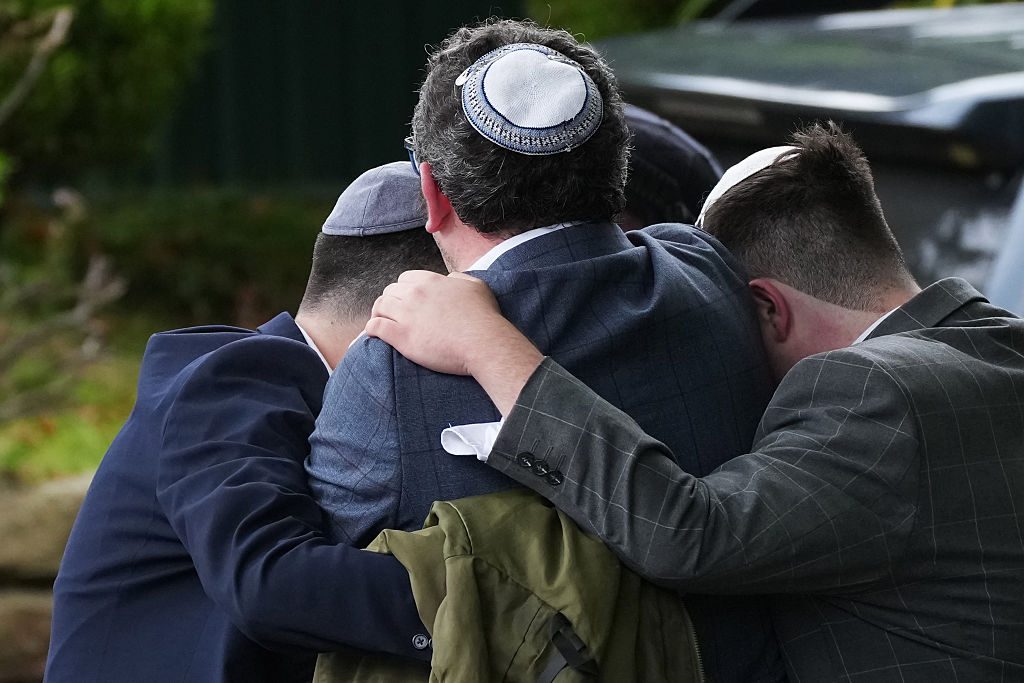As I sit in synagogue this Yom Kippur, the holiest day in our calendar, my heart is heavy with fear and sadness. The sanctuary, usually a place of solace and reflection, now feels like a fragile bubble in a world increasingly hostile to Jews. Today, once again, that bubble was violently pierced.
At around 9:30 this morning, worshippers at Heaton Park Hebrew Congregation in Manchester were attacked when a car plowed into congregants outside. The driver then exited and began stabbing people, killing two and seriously injuring another three. Police fatally shot the attacker as he tried to force entry into the synagogue, likely preventing far greater bloodshed. He may have been carrying a bomb.
While the motive is not yet confirmed, it is hard to ignore the rise of violent antisemitism in recent years. This attack is not an isolated incident but instead part of a disturbing pattern. Earlier this week, a 77-year-old rabbi was attacked in North London. Since Hamas’s assault on Israel on 7 October 2023, antisemitism has been surging, with the Community Security Trust recording 1,521 incidents in the first half of 2025 — the second highest number on record.
Incitement to violence against Jews is no longer confined to fringe elements. Public figures have helped amplify hateful narratives, normalizing antisemitism in public discourse. A member of music group Kneecap was this year charged with support for terrorist organization Hezbollah in front of crowds of thousands, while another act, Bob Vylan, called for “death to the IDF”. In both cases, their popularity has skyrocketed.
Mass protests, happening regularly since 7 October, frequently promote violence against Jews, with calls to “globalize the Intifada” and the ancient anti-Jewish battle cry “Khaybar, Khaybar ya Yahud”, which was heard regularly. As these slogans abound, police merely stand by. Schools have seen a surge of swastikas and Nazi slurs. Last month, the General Medical Council (GMC) allowed an allegedly Holocaust-denying doctor to keep her job, during a period of record antisemitism in the NHS.
The spilling of Jewish blood now seems to be permitted in all walks of life. The normalization of speech encouraging violence and the failure to adequately address it embolden perpetrators and contribute to the erosion of Jewish safety in the UK. The Manchester attack came as a surprise to none of us.
Prime Minister Keir Starmer — on his way back from Denmark for a Cobra meeting on the attack — said that security at Jewish institutions will be boosted. Yet this is reactive, not preventative. It treats the symptoms, not the roots, of antisemitism. In a society where calls for violence against Jews are not met with shock but instead celebrated, a more comprehensive approach is needed: education, community engagement, enforcement, a firmer stance against incitement by public and private bodies. Words alone are no longer enough. Action is overdue.
Terror is meant to terrify. As I weigh whether to take my children to our synagogue’s upcoming Sukkot celebration, I refuse to let extremists win. But as a parent, I must keep them safe. No family should fear being attacked for their faith. Practicing our religion has become an act of defiance against those who hate us, but it should never force a choice between faith and fear.











Join the discussion
Join like minded readers that support our journalism by becoming a paid subscriber
To join the discussion in the comments, become a paid subscriber.
Join like minded readers that support our journalism, read unlimited articles and enjoy other subscriber-only benefits.
Subscribe